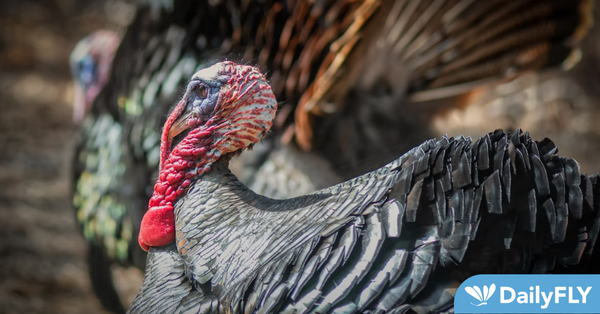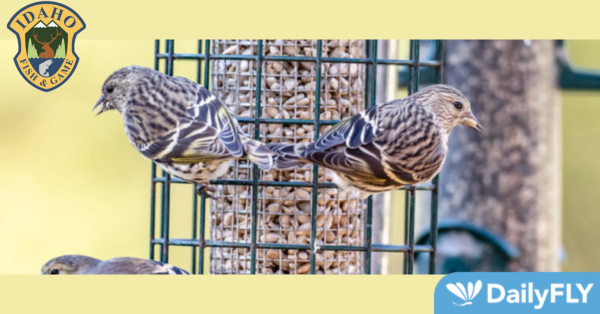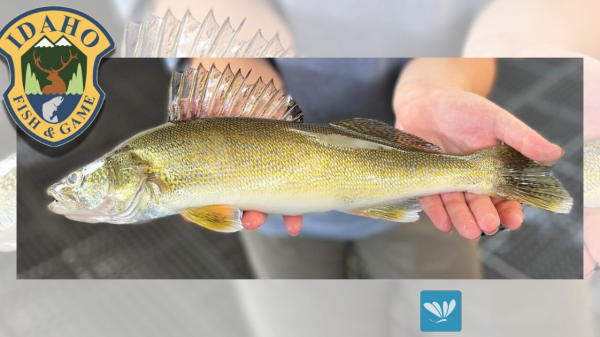BOISE – Spring turkey hunting season is upon us, despite what the view outside our windows may indicate. This seemingly eternal winter has been one for Idaho’s record books and will no doubt shake up this year’s spring turkey hunt.
That is, however, not a reason to sound the alarm and hang up the shotgun until fall. Fish and Game’s wildlife managers still anticipate a healthy crop of spring turkeys — pun intended — and with a little bit of flexibility and responsible outdoor stewardship, hunters should still be able to get on some birds in the coming weeks.
Here are a few reminders and helpful tips to help navigate the fading winter and get the most out of your spring turkey hunt.
Snowbirds
“It’s been a rough winter,” Fish and Game’s Upland Game and Migratory Game Bird Coordinator Jeff Knetter said. “We’ve seen record snow levels across the state, which could have an impact on turkey movements and where to find them.”
While brutal winters may not have the same devastation on turkeys as they do other wintering wildlife, deep snow and prolonged freezing temperatures do shuffle the birds around.
Like other wildlife, turkeys typically leave higher elevation areas and ride out the winter in lowlands. Many of these lower elevation regions fall under private landownership. Agricultural fields can be a nice, tropical getaway for a wild turkey, where food is easier to find and snow is minimal to nonexistent.
“You tend to see turkeys concentrated during winter, and a lot of times they’re in privately owned fields,” Knetter said.
That effect is multiplied when you have a long, severe winter, which can bunch up turkeys even more. As you plan your hunt, be thinking about the lower elevation areas where turkeys may still be hanging out.
Ask for permission
With the potential for more turkeys to still be down low (and most likely on private land), Fish and Game wants to remind hunters to always ask permission well before they head out hoping to bag a bird.
“Don’t be surprised to see even more turkeys hanging up on private land while we wait for the snow to melt,” Knetter said.
Hunting on private land can be a new and enjoyable experience. Landowners who do allow hunting are more likely to grant access to their land to people who ask well in advance.
It also doesn’t hurt to grease the wheels with a potential new landowner relationship by bringing them a small gift or writing them a letter. Sportsmen can improve landowner/sportsman relations considerably by looking at things from the perspective of a landowner. Landowners want gates left the way they had them (opened or closed) before the hunter arrived and don’t want vehicles driven on soft ground, creating ruts or damaging crops.
Plain and simple: Always ask for permission and be sure to follow the landowner’s rules when on their property.
Head for the hills (eventually)
Hunters looking to get after it on opening day and the subsequent first few weeks might have a harder time finding birds where they’ve historically had success. That lush mountain meadow or that mid-elevation hillside might still be buried under three feet of snow.
Wild turkeys typically spend the winter down low, then follow the snowline up as the snow recedes. With multiple feet of snow still blanketing some places, it could be several weeks before the turkeys start creeping back up to their summer homes.
“It may be a while before hunters start to see turkeys back in the places they hunted them during past, milder springs,” Knetter said.
It might be a smart move to start low and work high. Think like a turkey.
Tread lightly
Access is another important factor this year as snow (hopefully) begins to recede. Afterall, all that water has to go somewhere. And nowhere is that more apparent than dirt roads.
Whether you’re a turkey hunter, antler collector or mushroom picker, we’re all eager to get out and hit the mountains as the temperatures start creeping back up. But with that excitement comes the responsibility to recreate and travel appropriately.
“Whether on public or private lands, traveling on wet and muddy roads causes unwanted and unnecessary damage, and also makes a mess of your vehicle. We’re all excited to get outdoors, but to do it responsibly and wait until roads and trails are dry enough to be on,” said Roger Phillips, Fish and Game’s Public Information Supervisor.
Knetter adds there’s no reason for turkey hunters to push into the higher elevations.
“Turkeys won’t be up there anyway,” he said. “Be patient, start low and follow the snowlines as they recede.”
The turkey season runs relatively long, until May 25 in most of the state. There will be time to access your favorite turkey hunting spots as the weather changes, so be patient and flexible in the early season.
Final reminder before you head out
Turkey hunting isn’t dissimilar to other types of wild game hunting, but it does present some unique, important complexities due to the nature of close-range hunting, usage of full camouflage and calling.

















